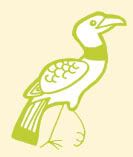
The most helpful advice I've received about money is that it should not be the reason you're doing something. And that's very good advice.
Five years ago when I moved to Portland, I took that advice and got a job at a law office. It was the first job to offer me an interview, and my only interest in the job was that it would pay my bills.

The problem was the law office was very difficult for me. It was divorce law, very intense in terms of work environment and the work itself. One would answer calls at the front desk from people in tears. Tension ran high, at all times. And I spent so much time removing this tension from my mind after I came home every day that there wasn't anything left to paint with.

And even when I did manage to paint, the results weren't really that interesting. My work was stagnant at that time, not growing or developing as it so badly needed to do. I didn't feel free enough to explore or grow. All of my explore-and-grow neurons were all used up by the time I got back to my desk, because I'd spend all of my time fretting about my job.
A job at a law office -- no matter how menial -- is a career kind of job. Without meaning to I'd landed a career kind of job without realizing that what I needed was a more...day-jobby kind of day job.

Fortunately I came to this realization very quickly. I left and took a job cleaning houses.

Cleaning paid about a third of what I'd been making at the law office. So in some ways it wasn't a smooth transition. I had to scale back big time -- first eliminating the obvious extravagances like Netflix and eating out, and eventually re-thinking almost every aspect of my life. I had to learn to change the way I shopped for groceries, the way I ate, the way I went through durable goods at home. I learned to go without. I learned to be resourceful and maybe use something I already had in a new way. It was a lot of work.

However, it was good work. Looking back, I realize that I live more gently on the earth now than I ever would have dreamed possible then. And these concepts of scaling back and going without and making do lead to other concepts like learning to mend and celebrating simple things and making it myself. I learned how to make all sorts of things, from deodorant to oven mitts. This way of thinking leads to more robust things, like gardening and getting serious about recycling (it's that nagging feeling of letting nothing go to waste). And most important of all: settling into this way of thinking frees you from the reliance on Accidental Career Day Jobs.
When I would tell people this story, I would always say: I make less than half of what I made at the law office, but I am ten times happier.
The minute I left my law office job I was instantly filled with a contented happiness. Even when I was hungry because I hadn't stuck to my budget properly, or when I was painting under the only working lightbulb in the apartment, I didn't care. I was no longer trapped.
And I was painting -- more than I ever had in my life, it seemed. I was making up for lost time.

And my pictures began to blossom, and take on a life of their own.

And the rest, as they say, is history.
FOOTNOTES
Here is a very excellent talk by Gary Vaynerchuk who uses his raw exuberance and the occasional f-bomb to encourage you to DO WHAT YOU WANT TO DO.
I have a lot of additional go for it! type things on my resources page, which I've updated recently. I've approached money in this way. In some ways I guess it's by not approaching it, which is a very weird (but, I suspect, very common?) method to go about making your business plan.
Amanda Palmer has a different method.
Lots of people I know just hit the pavement and get lots and lots of freelance gigs and that's how they make their living. (Which is basically what I'm doing now, but you can't do that if you are where I was five years ago: with no connections, a limited body of work, or NEED THE MONEY. In that case, you need a day job.) Other people I know do the craft shows and spend a lot of time on promotion, and focus lots of time on making sales.
There isn't a "right" or "wrong" way. There's a whole lot of DIFFERENT ways. And that's wonderful. Because it means you can find the way that is best for you.
This post is part of a collaboration with Jessica Swift and many other bloggers to anticipate the release of her forthcoming book, "The Declaration of You," published by North Light Craft Books. To learn more or read other posts on the subject of "money" -- as well as previous subjects covered by other people -- click here.



